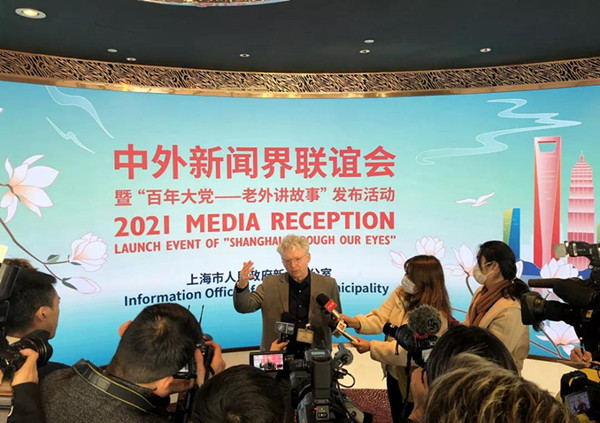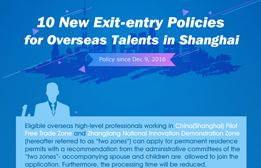Shanghai through our eyes | Marking 100 Years of CCP (Ep1-10)

What is Shanghai like to expatriates? The newly released video series "Shanghai Through Our Eyes," which was launched last week, would probably help with the answer.
With 100 episodes of about five minutes duration, the series interviews 100 foreigners - scientists, scholars, sports stars, artists and entrepreneurs - from 30 countries. Let's watch ten episodes first.
01. Malcolm Clarke 柯文思|British Film director
Shanghai stories through the lens of expatriates
The first episode features the story of Academy Award-winning filmmaker Malcolm Clarke from Britain, who has been working in China since 2013. His last work on the country was "Better Angels" in 2018, in which he explored the interdependent relationship between China and the United States.
The episode, however, returns from his macroscopic view of the two countries to his personal feelings towards a Chinese city that he favors very much.
"Before arriving in China, I lived in London, New York and Los Angeles, all world-class cosmopolitan cities," he said. "For centuries Shanghai has played precisely that role for China."
In the episode, he tells the story of how Shanghai was the first stop of his trip to China 40 years ago, when he represented ABC News of the United States to research a film about a China that has just opened up to the outside world.
Back then he stayed at the Peace Hotel at the Bund, which both look splendidly different today.
The Bund is the epitome of what Shanghai, as well as China, has achieved in the past century. "If someone wants to look into the future, they should journey to China," he says in the series.
Clarke said he will also release a documentary on Wuhan, which was the earliest city to deal with COVID-19 last year. He and his team took the risk and stayed in Wuhan for two and a half months, recording stories of people struggling with the virus and how the government reacted to it.
The film is titled "Viral."
"I think my team and I were the only foreigners that were in Wuhan during the entire lockdown. I haven’t seen any other films that have traced the events in the city from Day 1," said Clarke.
The filmmaker said that the film was "sad, even tragic in many ways," but it also showed how China handled the crisis very quickly.

 Print
Print Mail
Mail




